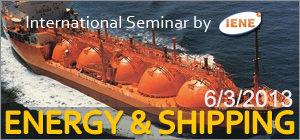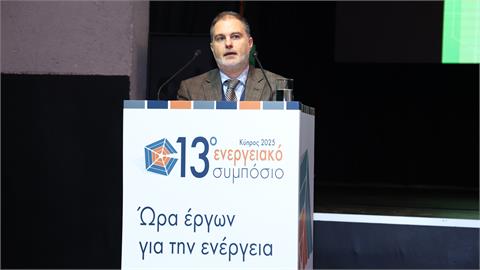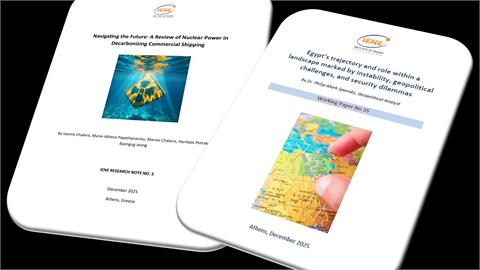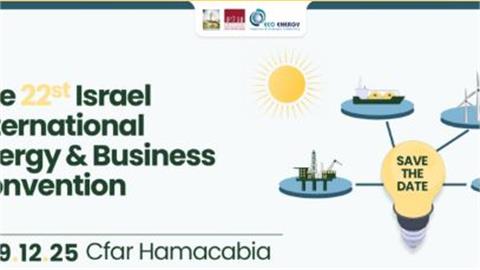The maritime transportation of energy commodities, the latest technological advances with regard to ship propulsion and the relationship of global oil and gas markets to freight rates and conditions were key topics in IENE’s international seminar on «Energy and Shipping», which took place in Athens on March 6, 2013. This international seminar which was organised by IENE for the second consecutive year was conducted under the auspices of the Greek Chapter of the “International Chamber of Commerce – Hellas”, and covered a broader and more international range of topics
The maritime transportation of energy commodities, the latest technological advances with regard to ship propulsion and the relationship of global oil and gas markets to freight rates and conditions were key topics in IENE’s international seminar on «Energy and Shipping», which took place in Athens on March 6, 2013. This international seminar which was organised by IENE for the second consecutive year was conducted under the auspices of the Greek Chapter of the "International Chamber of Commerce – Hellas”, and covered a broader and more international range of topics. Speakers, who came from the UK, France and Greece, included professionals, academics and analysts from both the energy and shipping sector. The seminar’s proceedings opened with addresses by Greece's Minister of Maritime and the Aegean, Mr. Kostis Moussouroulis, the Chairman of ICC Hellas, Mr. Nicolas A. Vernicos, and IENE’s Chairman, Dr. John Desypris.
Mr. Costis Stambolis, the Institute’s Executive Director, in his introductory remarks, outlined the strong interconnection between maritime transport and energy commodities, as well as the challenging prospects for the transportation of a wide variety of energy-related cargoes.
Mr. George Gratsos, President of the Hellenic Chamber of Shipping, stressed that the Greek merchant fleet currently represents 15,6% of the global merchant navy, in terms of tonnage, whereasGreek-owned vessels are 2.85 times larger in size than the global average. Especially as far as crude oil and oil derivatives are concerned, Greek-owned vessels transfer almost 24% of the global trade.
Mr. Gratsos also referred to the importance of the Greek commercial shipping for the country’s national economy, as its annual contribution amounts to 13-19 billion annually.He also noted that some 300 thousand people are directly and indirectly employed in the sector. However, he predicted that the sea transport of energy cargoes will probably be reduced over the years, owing to the large-scale introduction of RES and energy efficiency programmes.
Energy cargoes and shipping was the subject of the seminar’s first session and, as Mr. Steve Christy (Director, Gibson Shipping Energy, London, U.K.) noted, the spot earnings of VLCC (Very Large Crude Carrier) vessels have been drastically reduced during the last decade. More precisely, compared with the extremely expensive spot earnings of 220,000 dollars per day in 2004-2005, today the daily spot earnings have reached a historical low of 20,000 dollars and less. Mr. Christy attributed this reduction to the excessive supply of VLCC vessels during the last four years, stressing that there is currently a surplus of 112 vessels on a global level.
The Vice Chairman & Deputy CEO, Public Gas Corporation of Greece S.A. (DEPA) Mr. Spyros Paleoyannis, described the group’s strategy in the LNG sector and its multiple applications in the Greek energy market. According to Mr. Paleoyannis, DEPA is ready to bring LNG and CNG to distant areas and isles in Greece. He made special reference to the group’s plan to provide LNG to Crete for the needs of PPC for power generation through a floating terminal of 130,000 bcm capacity.
As far as commercial shipping is concerned, Mr. Paleoyannisnoted that LNG is a «green fuel», with numerous advantages compared to other available solutions. However, according to the Vice Chairman & Deputy CEO of DEPA, Greece has an immediate need of a clear regulatory framework so as to benefit from these advantages.
Mr. George Polychroniou, Division Head of Strategy & Corporate Development, also from DEPA, stressed the importance of a floating LNG terminal in Kavala, known as Aegean LNG to be built by DEPA. The terminal will provide natural gas to the market of Northern Greece but also to those in other countries in the Balkans. According to DEPA, this FSRU plant will be ready by 2015-2016, in order to commence feeding the markets of Bulgaria, Turkey, FYROM, as well as those of other countries of the region that might show interest. Aegean LNG terminal is planned to have a 150,000 cm storage capacity and will be able to process about 5 bcm of natural gas on an annual basis.
Prof. Harilaos Psaraftis, of the School of Naval Architecture & Marine Eng., Division of Ship Design & Maritime Transport at the National Technical University of Athens, and Dr. Konstantinos Gkonis, Shipping Energy Advisor, LNG Research, Barry Rogliano Salles Shipbrokers, referred to a range of technical and environmental issues in the energy cargoes agenda.
The use of modern technologies and special type vessels in energy-related maritime transportation was the subject of presentations by Mr. Christian Krohn-Hansen, Chartering Manager of StealthGas Inc., which specializes in LPG vessels, and Ms. Helena Hauerhof of City University, London, who analyzed the current trends and challenges in the sector. Ms. Hauerhof presented the findings of a research programme by the Maritimes Studies Dpt. of City University, London on alterative design options, propulsion options and ship operation.
IENE’s 2nd "Energy and Shipping” International Seminar concluded with a session dedicated to the financing and insurance of energy cargoes, especially in oil and natural gas, with the participation of Mr. George Koutinas (Insurance Expert, Koutinas S.A.), Mr. Demosthenes Stavgiannoudakis(Shipping Division of First Business Bank and Maritime Financial Management Lab, University of Piraeus) and Mr. Costis Stambolis, IENE’s Executive Director concluded the seminar with a presentation on price and energy security considerations in relationship to the global oil and gas markets.
The seminar was sponsored by Prime Marine Corporation, whereas the event’s media partners included the daily "Kathimerini”, "SeeNews”, "Maritime Economy”, as well as the Energia.gr website.




